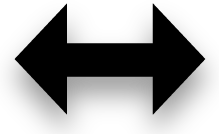
We are very pleased to announce the new groups participating in our 2022 Self-Organizations program. These projects were selected from over 60 applications from across the Arab world and beyond, with Rana Elnemr (visual artist, Cairo) and Samia Labidi (curator and researcher, Tunisia) advising on the selection process. The program is supporting projects by informal groups or collectives across three different categories as follows:
Informal Co-ops
Coming from different artistic disciplines, Lebanese artists Alaa Merhi, Mohammad Ghadaboun, Rawan Shouman, and Sarah Bazzi will set up a studio space together for nine months in which they produce their artworks, as well as create a supportive community. The group will organize the space by combining their different skills: facilitation, knowledge of local suppliers; public presentation, budgeting and space management.
Doua Fatfat, Eman Hussein, Nada Elissa, and Sarah Gabr Helmy are a group that will together set up a movement studio for a six months period in support of their individual practices. The studio will host training, rehearsals, online classes and other knowledge sharing activities, and will be organized through a consensus-based decision-making model.
Topical Assembly
Yemeni artists, graphic designers, and cultural workers Bashayer al-Jaberi, Nisreen Nader, Sadiq Al-Harasi, and Walid Al-Ward are coming together to organize an online event that gathers Yemini artists in an online space for exchange. The event would serve as a starting point to collectively articulate an understanding of artists’ rights developed through a process of active listening. The online event will also offer information about available opportunities and grants open to Yemeni artists and how to apply.
Morocco- and Tunisia-based artists, researchers, and writers Kaoutar Chaqchaq, Malek Lakhal, and Mariam Amri seek to build a feminist coalition between the new experimental literary magazine Asameena and the informal feminist collective “Al Nakirat”. Together, they would like to gather for two days of workshops in Tunisia on how to make creative works that take a decolonial stance and a public conversation between the two North African groups.
Your Ideas
Theatermaker Bishoy Helmi, journalist Mohamed Mahdi, and artist Shirin Khlif will work together on collecting popular myths in conversations with local communities in upper Egypt, the Delta, and Tunisia identifying their links and transformations in relation to contemporary realities to be made available as basis for exchange amongst artists and researchers.
Dima Mabsout, Ghaida Dirani, and Rami Chahine will bring their skills together to create an archive of the Lebanese collective they are part of, Zayraqoun, dedicated to performances and interventions in public space. Together, they will collect photos and videos, write descriptions of their works, and record interviews with members of the collective, in order to document the cultural/artistic movements of solidarity that emerged as a response to the Revolution and the unfolding crises in Lebanon.
The Emirates-based artists and researchers Lubnah Ansari, Shazia Salam, and Zahra Mansoor will work on their project, that takes the form of collective conversations, playful workshops, and artistic interventions. The project’s goal is twofold: to complicate present-day India-Gulf discourses and to cultivate transnational solidarity. By creating a space of gathering that allows vulnerability and collective reflection of shared (or parallel) experiences; the group will work in ways that consider the complicated dynamics of communication and reconciliation while remaining self-reflexive throughout.
This edition was implemented as part of the project “Future Acts”, which is partially supported by the Federal Foreign Office, Germany.